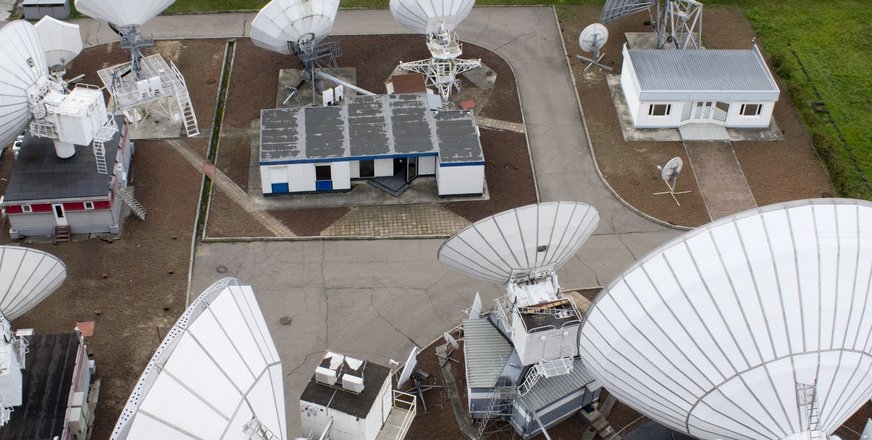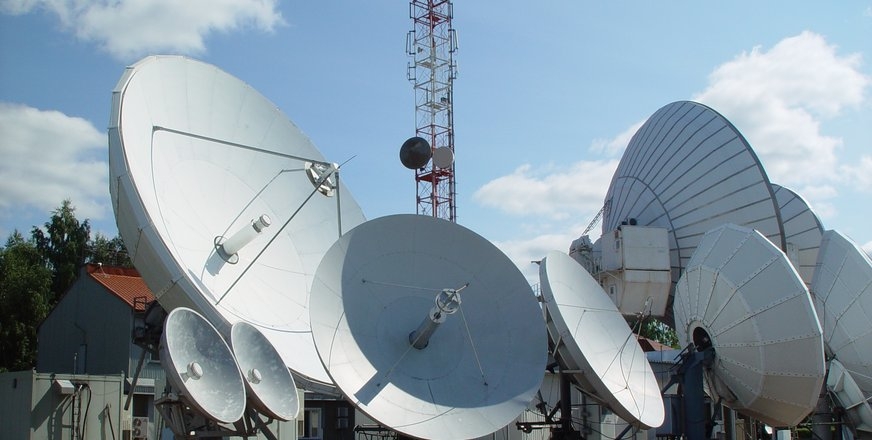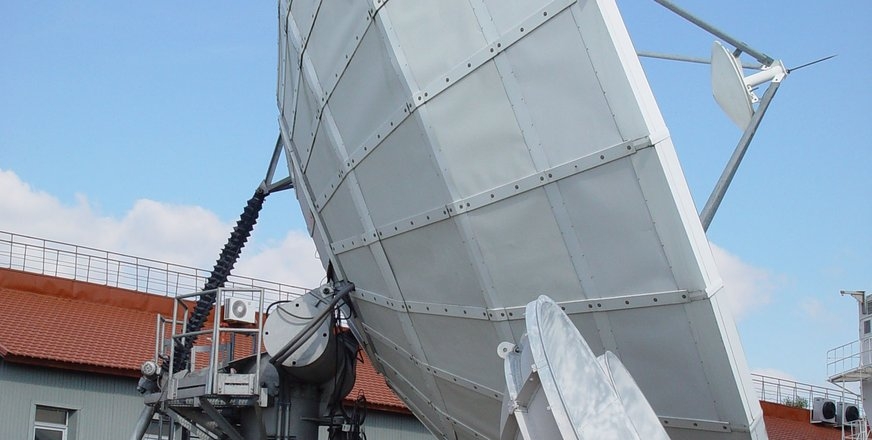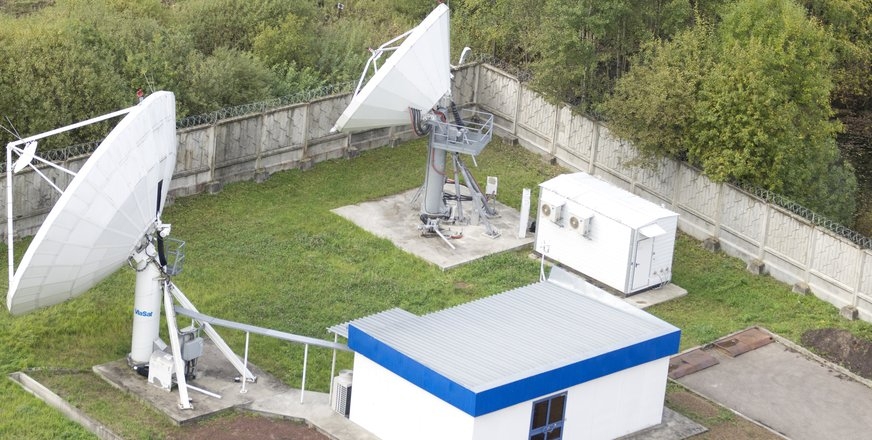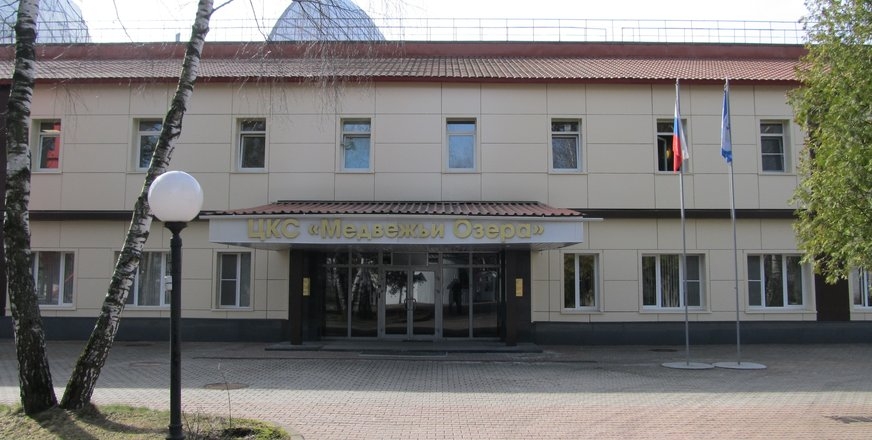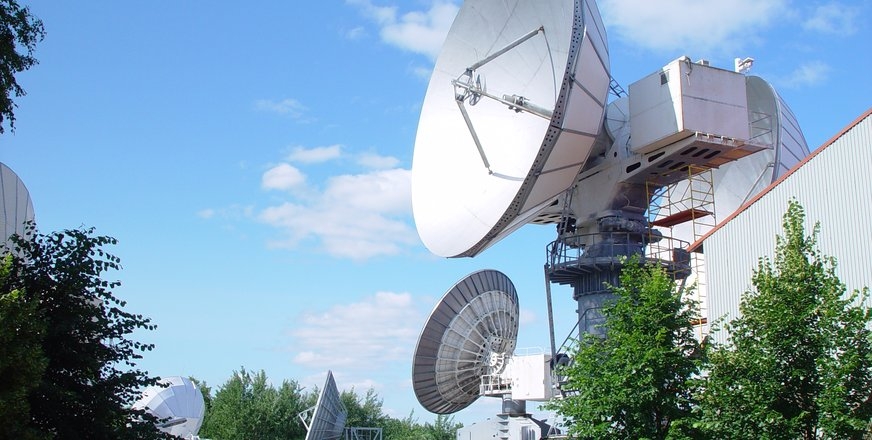Bear Lakes Center
The Satellite Communications Center (SCC) Bear Lakes traces its history back to 1967. In 1995, the satellite communications facility in the Bear Lakes got the status of the Satellite Communications Center - a branch of the Russian Satellite Communications Company (RSCC). At present, the SCC Bear Lakes is one of Russia’s largest teleports.
The well-developed infrastructure, modern technical facilities and professional staff of the Bear Lakes provide a complete range of communication and broadcast services to the Russian and foreign users.
1967 Beginning of the great journey
The SCC Bear Lakes history began in 1967 with the construction of the first satellite transceiver station “Orbita” on the premises of the Special Design Bureau of Moscow Power Engineering Institute (MPEI SDB) located near Moscow.
On November 4, 1967, establishment of the Satellite Communications Station was finished and the first in the country broadcasting session of the Central Television program was held via Molniya-1 satellite with Vladivostok. This day is considered a birthday of the Satellite Communications Station in the Bear Lakes and a foundation day of the Russian satellite operator Federal State Unitary Enterprise Russian Satellite Communications Company.
From November 1967, regular broadcasts to the Orbita network of receiving stations placed in remote cities of Russia and in the capitals of the Union republics, started.
The Orbita system was the first circular TV distribution satellite system in the USSR, which used advanced satellite communications capabilities.
1970s
On June 28, 1974, the Satellite Communications Station in Bear Lakes became part of a newly established enterprise Satellite Communications Center as the Orbita-1 Satellite Communications Station, which main task was to develop satellite communications and broadcasting in the country in the interests of the national economy.
In 1974, using the technical facilities of the space communications station, as well as the Intelsat and Molniya telecommunications satellites, the first direct government communications channel Moscow-Washington was arranged.
Regular broadcasting and rendering of telephony services was started in the Orbita network of the receiving stations in Siberia, Central Asia and Far East. Also, the work within the Intersputnik International Organization of Space Communications was arranged. The staff of the Orbita-1 satellite communications station in collaboration with the specialists of the Ministry of Communications, participated in constructing and maintaining satellite communications stations abroad.
The portable ground stations of the Mars type, located at the Orbita-1 Satellite Communications Station, with a group of the station specialists participated in covering visits of the country's top leadership to the allied countries (India, Cuba), transmitting telemetry signals and TV reports from the Baikonur Cosmodrome, and arranging teleconference space bridges between the Mission Control Center (MCC) and Mir Space Station.
In 1979, the Satellite Communications Center was renamed the Union Radio Broadcasting and Radio Communications Center No. 9 (SUR-9).
1980s
The technical facilities of the Orbita-1 Satellite Communications Station were upgraded to broadcast the reports on the 1980 Summer Olympic Games to Australia, Japan, and Middle East countries. Thus, the station becomes a large teleport that can create a communication channel with stations located all over the world.
1990s and Contemporary History
In 1995, the Orbita-1 Satellite Communications Station got an official status of the RSCC branch and its current name – The Satellite Communications Center (SCC) Bear Lakes.
In 1996, a fiber optic communication link from the Shabolovka Technical Center of the RSCC to the SCC Bear Lakes was constructed and commissioned. This made possible to stop using delivery of signals via radio relay lines (RRL) and ensure a new level of quality and reliability of digital broadcasting.
In 1998, the SCC ensured receiving of reports from the Olympic Games in Australia for the Channel One, VGTRK, and NTV.
Since 2001, regular satellite broadcasts of television programs in digital format were started via the SCC Bear Lakes.
In 2003, the RSCC and the specialists from the SCC Bear Lakes developed and produced mobile telemedicine laboratory MTL-5852 on the basis of KAMAZ-43118K within the work on creation of complexes using satellite communications of the multilevel telemedicine systems to fight infectious diseases. In 2003-2015, MTL-5852 participated in major Russian and international exhibitions and forums, including in Geneva, Hanover, Chisinau and Moscow.
As part of a government program according to which federal TV channels were supposed to be broadcast digitally, in November 2004, the SCC Bear Lakes started digital transmission of those federal channels to M and G zones (European part of Russia, Ural, and Western Siberia) via the Express-AM1 satellite.
In 2005-2006, a domestic TV signal coding system was developed, tested and implemented based on the SCC, and test broadcasting of TV programs in MPEG-4 format was started.
In May, 2009, the SCC Bear Lakes provided HD television broadcasting of the international song competition Eurovision-2009 from Moscow to European countries.
In 2014, the second half-ring of the fiber optic communications link was commissioned, which increased reliability of the signal transmission system between the Shabolovka Technical Center and the SCC Bear Lakes.
In 2014, the SCC Bear Lakes provided broadcasting of reports from the Winter Olympic Games in Sochi.
From 2015 to 2020, active work was carried out on upgrading, retrofitting and further developing the SCC to provide state-of-the-art services to customers.
The SCC Bear Lakes regularly hosts the All-Russia High-Speed VSAT Assembly Championships.

